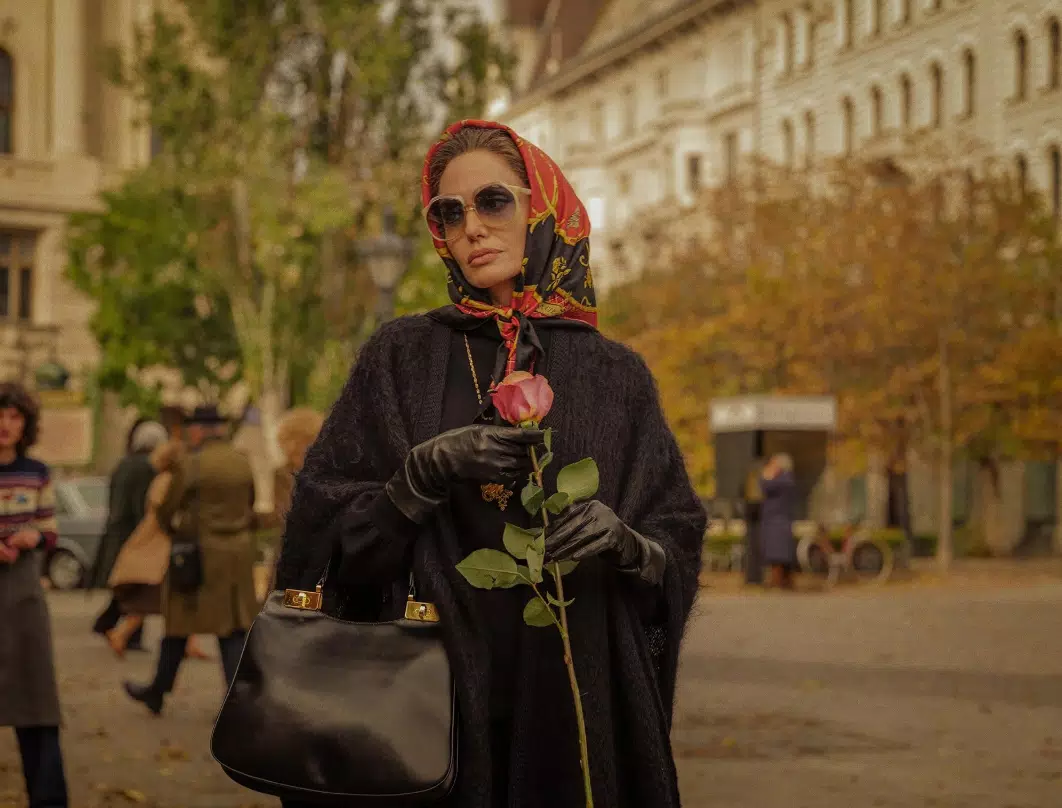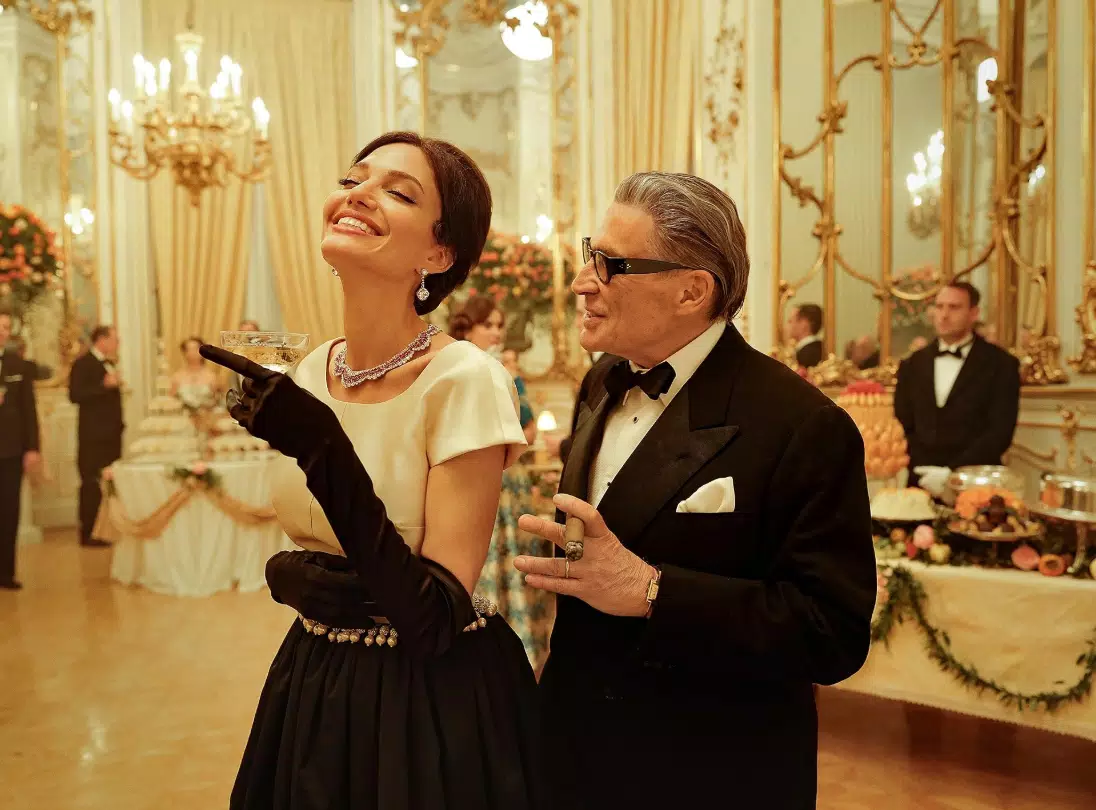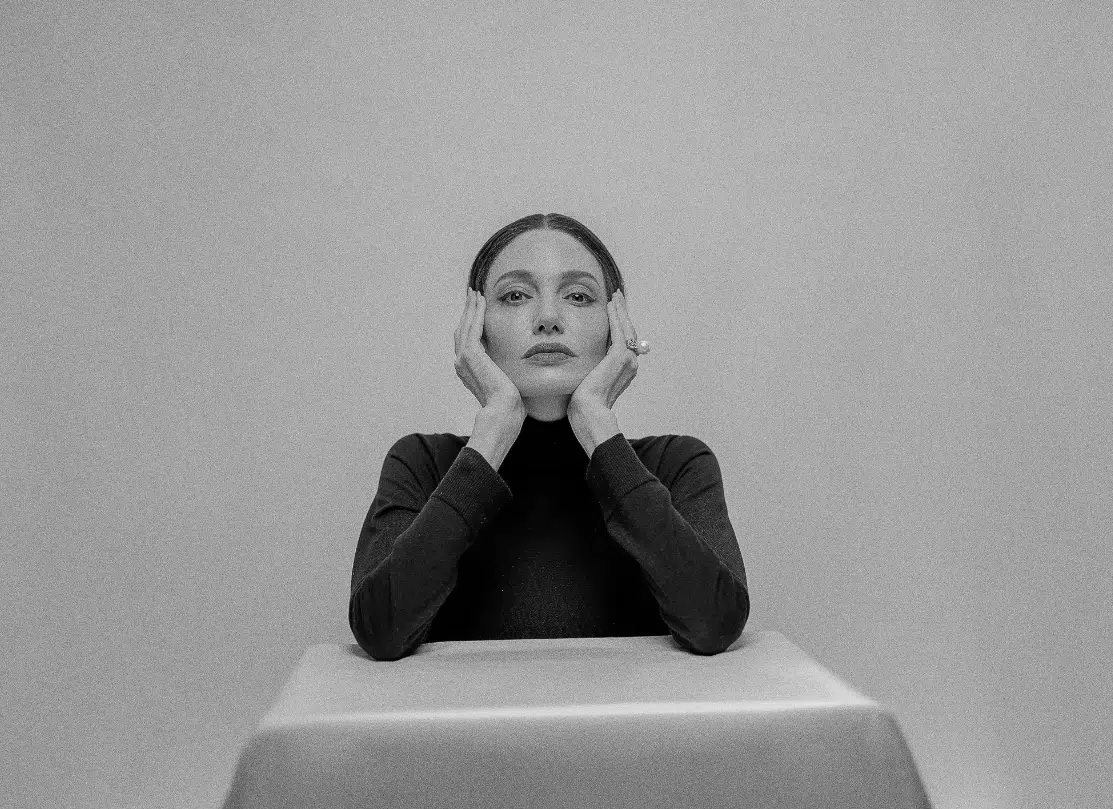Kicking off a Wednesday watching such a depressing, sad movie like the conclusion of the "Lady with Heels" trilogy, directed by the acclaimed Chilean director Pablo Larraín, the equally melancholic and unsettling Maria, can be a complete emotional and psychological challenge to even the biggest melodrama lover. But far from the sorrow that witnessing these purely painful images and dialogues can cause, I set out with certain enthusiasm to complain to the Oscars—from my scarce impressionable presence—how is it possible for this biopic to have had no more than one nomination, even after having watched Emilia Pérez a few days ago. The seasoned director teamed up once again with scriptwriter Steven Knight after bringing the provocative, heartbreaking and also beautiful Spencer to life. Nonetheless, on this occasion, the script is shocking and goes through a narrative cycle that repeats itself, that leads to a dead end and in which, from time to time, the story suddenly falls flat due to the lack of plot "hook."

Beyond this spiral-shaped weakness I felt trapped in, which many people may not feel the same about, Maria is a title that keeps its promise—as all movies should—from the most basic aspect: its premise. And if you are familiar with Larraín's cinema, then much better, since the movie far exceeds the lowest expectations anyone could have had. The director once again plays with upper-class' preconceived standards like he did in the first two installments of his trilogy and puts us in the shoes of a broken, dismantled woman that longed to be an ordinary lady like any other, but that never in a hundred lifetimes could have been one. The consequences of suffering the eternal punishment for having a remarkable gift.
Maria Callas was—and still is—considered the biggest opera singer of all time. What could have been a linear, biased representation of her life was transformed into a late portrayal focused on her last days alive and how she processed the transition to the afterlife before even experiencing it. Interestingly, one of the standout aspects of the movie is the use of silence, which is completely unrelated to the protagonist's profession. There's much, too much, I would say. Maria's voice fades away when she has nothing sincere and honest to say—something that's constantly repeated—and a void is abruptly felt, which is not only filled with this lack of words, but also with a despair that can move even the most rigid human being of all.

Angelina Jolie portrays one of the most demanding, daring roles of her career by bringing the protagonist to life, from whom we don't separate at all during the 124-minute runtime. Everything makes more sense and the impact is even greater than at the ending when, in the final credits, we see the real Maria for the first time: shimmering, alive, smiling, in love. Her love story with Aristóteles Onassis, the most famous Greek-Argentine shipping magnate of the 21st century, that could have been portrayed through the controversial lens of its "unofficial" status, only adds the bittersweet taste of the tragedy the story needs. That "what if?" feels authentic from all angles and becomes a significant part of the idea we, as the audience, form about Maria Callas. A woman that could have had it all, but that only settled for expressing her voice on stage. "I am nothing outside the stage," she says at a certain moment. Nothing can destroy us more than the absolute sincerity of a broken being.
But what were the reasons that took the singer, almost regrettably and naturally, to plunge into a depression hole? Maria doesn't try to point the finger at the figure, but rather explores with delicacy and respect what could have happened to this woman in her youth, how the weight of bad decisions—and relationships—left her in a tight spot at an early age and, in parallel, the most important loss of her life: the gift of singing like an angel. This year's Oscars have missed a priceless opportunity to carry prestige to the ceremony, that's been downhill for a long time now, with several "snubs"—the most relevant being Angelina Jolie's omission for Best Actress for Maria. And truth is that, sincerely, I can't understand how the Academy even liked Karla Sofía Gascón.

Just like in the majestic portrayal of Lady Di in Spencer, Larraín mixes the most realistic drama with psychological thriller and surrealism hints. The perfect analogy for the singer's mental imbalance is drawn from the very beginning with the introduction of a younger interviewer and his "camera" that follows him everywhere. He isn't what you would call a "seasoned journalist," but she welcomes him into her home and decides to let go and be who she wants to be. This can not only be seen as a tangible extension of the character's distortion of reality, but also, in my case, I felt it as if Larraín himself was leaping off the screen and being played by Kodi Smit-McPhee—for those who don't remember the name, he is Viggo Mortensen's son in The Road—entering into his own story. Absolute brilliance. Maria believes everyone still adores her like when she was at the height of her fame, but those days are over. There are only external glances she interprets as personal issues, compliments taken as insults and journalists/paparazzi that don't add much to the matter.
The only thing I can attest is that these are weird times for cinema, but, overall, for the Academy's preferences in general. Things are no longer like they used to be, we can sense a need for attention from kilometers away that, unfortunately, doesn't align with good taste. And there, far away, Larraín lurks with his teeth. On this occasion, the third time isn't the charm, the charm is his last movie.
Posted on FEBRUARY 12, 2024, 18:53 PM | UTC-GMT -3
If you liked this article remember to give it a 👉 LIKE, put it in your FAVORITES, COMMENT 🗣️ , and FOLLOW ME for more movie and series content 📽






Share your thoughts!
Be the first to start the conversation.